If you have just switched to Android from another operating system like Mac OS or Windows, then it's imperative that you know how to transfer photos from Android to your Windows PC. Well, first of all, it is important that you install a dedicated file manager app like ES File Explorer File Manager or Root Explorer (I'll be explaining why in just a while) which would allow your Android devices to “see” your file system and the files and folders stored on it.
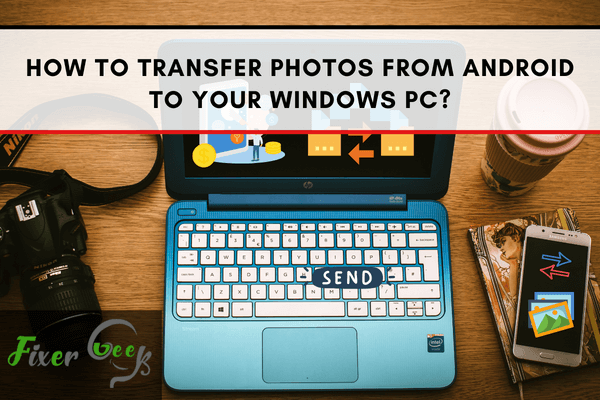
iPhone and Android are the two most popular mobile platforms that you will see in every mobile market or online store while purchasing a Smartphone. Although devices for both of these mobile platforms come with similar inbuilt features, the debate between iPhone and Android keeps on raging because of the vast difference in the compatibilities between Apple and Google.
Moreover, it is not easy to share data between iPhone and Android devices. You may sometimes feel annoyed due to such limited capabilities, but here are some techniques through which you can quickly transfer data between iPhone and Android or vice versa. Let's read on and figure out - "How to share photos from iPhone to Android via Bluetooth."
A quick guide on How to share photos from iPhone to Android via Bluetooth
The first method to override this limitation of sharing data between iPhone and Android starts with the Manual Drag and Drop method supported by Windows. In this quick guide, you'll learn about dragging the iPhone default photo directory and dropping it into the Android's image folder.
Method 1: Drag and Drop (Manual)
This method works on a Windows PC; you will need a USB cable to connect the iPhone and the Android device. Before working on the connection, ensure that you've successfully installed the device drivers so that your PC can successfully locate them.
Here are the steps on
'How to share photos from iPhone to Android via Bluetooth":
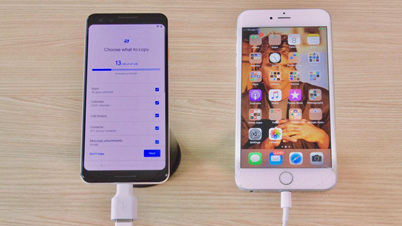
Connect your iPhone and Android phone to your PC via USB cable.
Refresh 'My Computer' and check for the two new drivers under the 'Portable Devices' tab for your Android phone and iPhone. If you don't see any update regarding the two new drivers' entries, then install the phone drivers on your Windows PC.
Select and run the iPhone storage in a new tab.
In the same way, select and run the Android's storage in a new tab.

Locate the directory named DCIM in the iPhone storage tab, and then easily select the photos in the DCIM folder to drag them from the iPhone images folder and drop them onto your Android images folder.
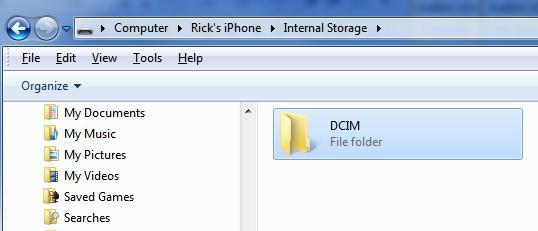
That's the widely used drag and drop method. Sometimes using this method could be a daunting task because of the uncertain issue of your Windows PC ultimately ending up hanging while transferring a bulky number of images. You can use a quick hack to avoid such a situation. Copy the photos from the iPhone onto your Windows PC and then copy them from your PC to the Android device. Don't forget to use a temporary folder for storing the photos of your iPhone on your PC.
Method 2: Importing
As far as manual methods are concerned, the drag and drop method is most widely used because it allows users to share the data on Android or iPhone devices selectively. If you don't want to transmit the information selectively, you can import all your iPhone data into your Windows PC. Then transfer the imported data from the PC to the Android device.
Here are the following steps to share photos from iPhone to Android via Bluetooth:
Connect your iPhone device to the Windows computer using a USB cable.
Run 'My Computer', then right-click on the iPhone storage icon under the portable devices tab. A pop-up menu will appear after the right-click, locate the 'Import pictures and videos' option, and select it.
Your PC will store the images in the default root folder named 'My Pictures.' Select and open the default 'My Pictures' folder on your PC.
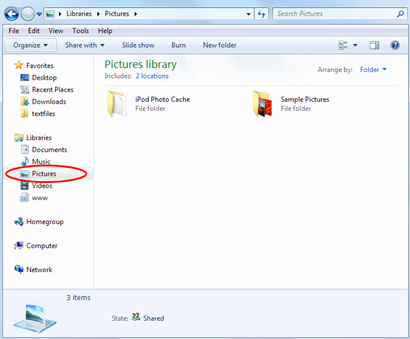
Now, plug in your Android phone to your PC via USB cable and open the file manager on your Android device and locate the image folder named DCIM.
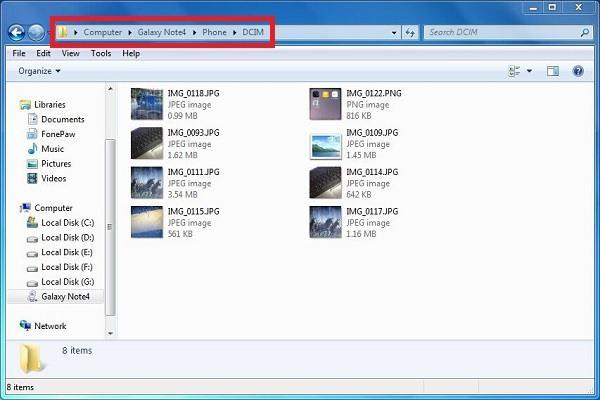
Copy and paste the imported photos from your PC to your Android device.
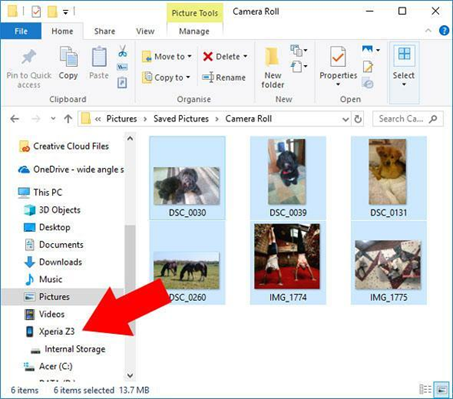
Summary: How to transfer photos from Android to your Windows PC?
- Android File Transfer is the best option for Mac users looking to transfer photos from their phone to their computer.
- Send Anywhere is an easy to use app that has a clean interface and file transfers are simple and fast.
- SHAREit is one of the fastest ways to transfer files from device to device.
- Zapya is an excellent tool for transferring files from Android to PC.
- You can easily move your photos from your Andrioid phone to your computer using these easy steps.
Conclusion
These methods will effectively share the photos from iPhone to Android via Bluetooth, but these methods will only transfer images stored on your iPhone Camera Roll.